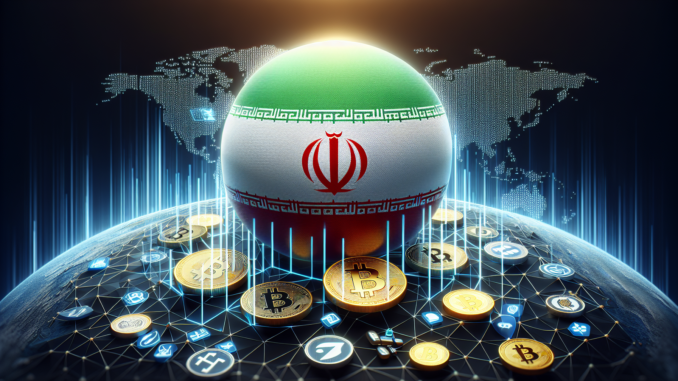
The increasing use of cryptocurrencies is a much-discussed topic worldwide, and Iran is now in the spotlight of the crypto community. In light of the ongoing economic sanctions against the country, Iran has announced plans to develop crypto regulations to mitigate the economic impact. This decision could not only shape Iran’s domestic policy but also spark new international discussions about the role of digital currencies.
Background: Iran and Economic Sanctions
Iran has been facing strict economic sanctions for many years, mainly imposed by the USA. These sanctions aim to influence Iran’s economy and include trade restrictions, posing significant challenges for the country. In such an economic environment, Iran is seeking alternative ways to bypass international trade barriers and stabilize the national economy. Cryptocurrencies present themselves as a potential solution in this context.
Iran’s Move Toward Crypto Regulation
Recent news about Iran’s move to introduce crypto regulations is significant. The Iranian government plans to create a legal and regulatory framework for the use and trade of cryptocurrencies. This is intended not only to facilitate dealings with digital currencies but also to enable international trade through cryptocurrencies despite sanctions. This step shows Iran’s willingness to embrace modern technologies to overcome economic difficulties.
Analysis of Possible Impacts
The decision to regulate cryptocurrencies could have several impacts on Iran and the global crypto landscape. On one hand, it could help Iran strengthen its economic relationships with other countries through digital currencies, as these transactions are less susceptible to international sanctions. On the other hand, increased integration of cryptocurrencies could expose the Iranian economy to new risks, such as the volatility of crypto prices or cyberattacks.
From a global perspective, Iran’s move towards crypto regulation could be a precedent. It might encourage other sanctioned states to take similar measures to address their economic challenges, which could ultimately increase the use of cryptocurrencies in the global economy.
Challenges and Opportunities
Iran’s decision brings both opportunities and challenges. Introducing a regulatory framework can strengthen trust in the crypto market, promoting more investment and innovation. Additionally, it could drive technological development and the expansion of blockchain technology in the country.
However, there are significant challenges. Creating an effective regulatory system is complex and requires both technical expertise and international cooperation. Moreover, the volatility of cryptocurrencies and the risk of money laundering or terrorism financing could lead to regulatory concerns.
Conclusion: A Bold Step with an Uncertain Future
Iran’s decision to focus on crypto regulations to mitigate the impacts of economic sanctions is undoubtedly bold and could have far-reaching consequences. It symbolizes a significant step towards financial independence and technological innovation. Nevertheless, the future of this endeavor remains uncertain. The international community will closely monitor developments in Iran and may reassess its own stance on cryptocurrencies. Ultimately, Iran’s approach could herald a new era in global finance, where digital currencies play a central role.
Leave a Reply